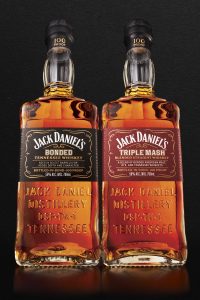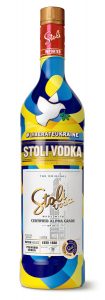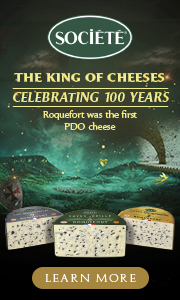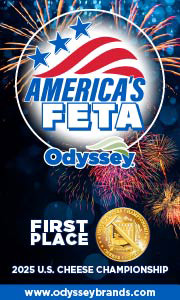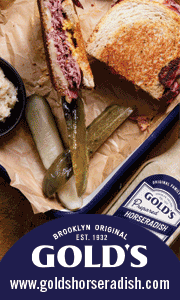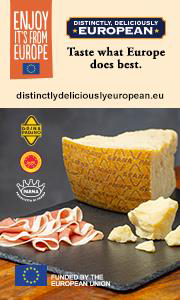Southern Glazer’s Donates $100K for Humanitarian Aid in Ukraine
 Alcohol beverage distributor Southern Glazer’s Wine & Spirits is donating a total of $100,000 across three charitable organizations supporting humanitarian aid in Ukraine. The donation is the result of an employee fundraising campaign, in which Southern Glazer’s matched employee contributions to organizations performing meaningful work to help Ukrainian refugees.
Alcohol beverage distributor Southern Glazer’s Wine & Spirits is donating a total of $100,000 across three charitable organizations supporting humanitarian aid in Ukraine. The donation is the result of an employee fundraising campaign, in which Southern Glazer’s matched employee contributions to organizations performing meaningful work to help Ukrainian refugees.
In support of the Ukrainian community, Southern Glazer’s pledged to support World Central Kitchen, United Nations High Commissioner for Refugees and Cooperative for Assistance and Relief Everywhere through its donation match campaign. All individual employee donations were made for humanitarian aid in Ukraine through Southern Glazer’s internal giving platform, VolunCheers Online, in order to qualify for the match.
Based on employee contributions and the company match, Southern Glazer’s will be donating $42,214, $40,127.52 and $17,659 respectively to WCK, UNHCR and CARE with the hope that the funds will help the organizations respond with supplies and resources needed to help those affected by the current crisis.
“Southern Glazer’s stands in support of the Ukrainian people and wfe cannot thank our employees enough for their generous contributions to this campaign,” said CEO Wayne E. Chaplin. “Through our VolunCheers platform, we are able to rally our workforce around providing humanitarian relief for Ukraine and its neighboring countries. We are thankful for the meaningful work these charities are spearheading to ensure families are given the supplies and resources needed.”
For updates on news in the specialty food and beverage industries, subscribe to Gourmet News.
Jack Daniel’s Launches First Super Premium Whiskey Line Extension in 25 Years
The Jack Daniel Distillery introduces Jack Daniel’s Bonded Tennessee Whiskey and Jack Daniel’s Triple Mash Blended Straight Whiskey as the first two permanent expressions in the brand’s new Bonded Series. The Bonded Series honors the whiskey making excellence of the iconic Jack Daniel Distillery and will be a permanent extension in the Jack Daniel’s Family of Brands.
Both Jack Daniel’s Bonded and Triple Mash are Bottled-in-Bond at 100 proof (50% abv), with packaging inspired by the original design of the 1895 Jack Daniel’s Tennessee Whiskey bottle. As stipulated by the Bottled in Bond Act of 1897, a bonded whiskey must be distilled by a single distiller during a single season, matured in a government bonded warehouse for at least four years and bottled at 100 proof.
“The Jack Daniel Distillery has been making exceptional American whiskey to the highest standards for generations, before and after the Bottled in Bond Act, dating back to the days of Mr. Jack himself,” said Chris Fletcher, Jack Daniel’s master distiller. “Jack Daniel’s Bonded and Triple Mash are a nod to our heritage with a touch of innovation and craftsmanship. These whiskeys are another opportunity for both our friends and new drinkers to explore and discover everything Jack Daniel’s has to offer.”
Jack Daniel’s Bonded and Triple Mash will be available across the United States \in May with international markets to follow later in 2022. It will initially be available in 700mL bottles for suggested retail prices of $29.99 and $32.99 respectively. They will be available for pre-sale through ReserveBar beginning May 3, including a limited edition Jack Daniel’s gift item while supplies last.
For updates on specialty foods and beverages, subscribe to Gourmet News.
Stoli Promotion to Benefit World Central Kitchen for Ukraine Relief
Stoli Group has launched a limited-edition bottle of Stoli Vodka to benefit Ukraine. Proceeds will be donated to World Central Kitchen, a non-profit organization founded by Chef José Andrés that provides fresh, nutritious meals to refugees fleeing Ukraine and those who are staying in cities impacted by the war.
“As Ukrainians continue to suffer unimaginable losses, we are doing our small part to show unequivocal support,” said Damian McKinney, global CEO. “This Stoli Vodka bottle will not only provide financial resources to Ukraine, but is also a symbol of solidarity.”
Drawing from the colors of the Ukrainian national flag, the geometric graphic pattern that adorns Stoli Vodka’s Ukraine limited-edition design is inspired by the communities around the world that have come together to support the people of Ukraine. This special limited-edition will be launched globally as one of the key pillars in reaching the goal of raising $1MM for WCK by Aug. 24 – to celebrate Independence Day of Ukraine.
“World Central Kitchen is grateful for Stoli support and commitment to our mission. They share our belief that a plate of food is more than just nourishment; its hope and a sign that someone cares,” said Jason Collis, WCK’s vice president of relief. “We appreciate Stoli’s quick movement to action and continued support, which will help us to serve meals as long as we are needed.”
WCK has served more than 6 million meals across Ukraine, Poland, Moldova, Hungary, Romania, Slovakia and Spain. Working with local restaurants, caterers, and food trucks to provide nourishing meals at border crossings, shelters, and other refugee communities, WCK serves more than 300,000 meals daily in the region. The limited-edition bottle follows a previous financial commitment to WCK from Stoli.
In addition to the limited-edition bottle, Stoli Group is launching a charitable cocktail program called Cocktails for Ukraine, which encourages bars and restaurants to donate $1 for every Stoli cocktail sold to WCK. Consumers will also have the opportunity to make a direct donation to WCK by scanning the QR code on the menu that links to the Stoli Group fundraising page for WCK – here.
The limited-edition in support of the Ukrainian people will be available for purchase in select stores in the United States and select countries around the world including the United Kingdom, Spain, Italy, Poland, Latvia and Czech Republic.
Headquartered in Luxembourg, Stoli has production facilities in Spain, Italy, Argentina, and the United States, some of which are steeped in history dating back to the early part of the last century. For more information, visit stoli-group.com.
For more specialty food industry news, subscribe to Gourmet News.





